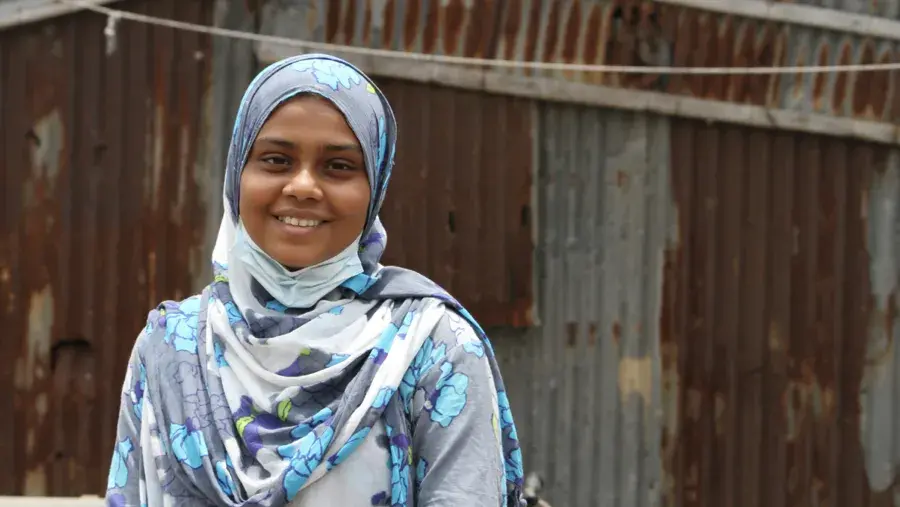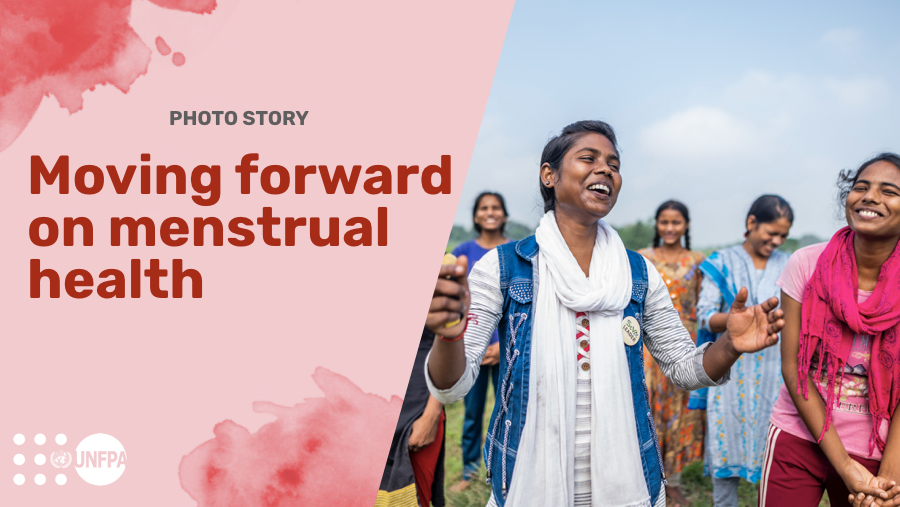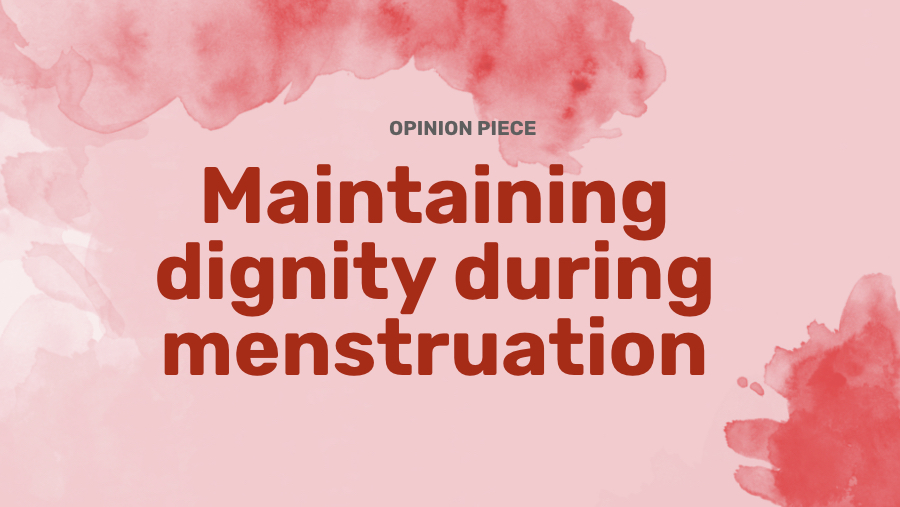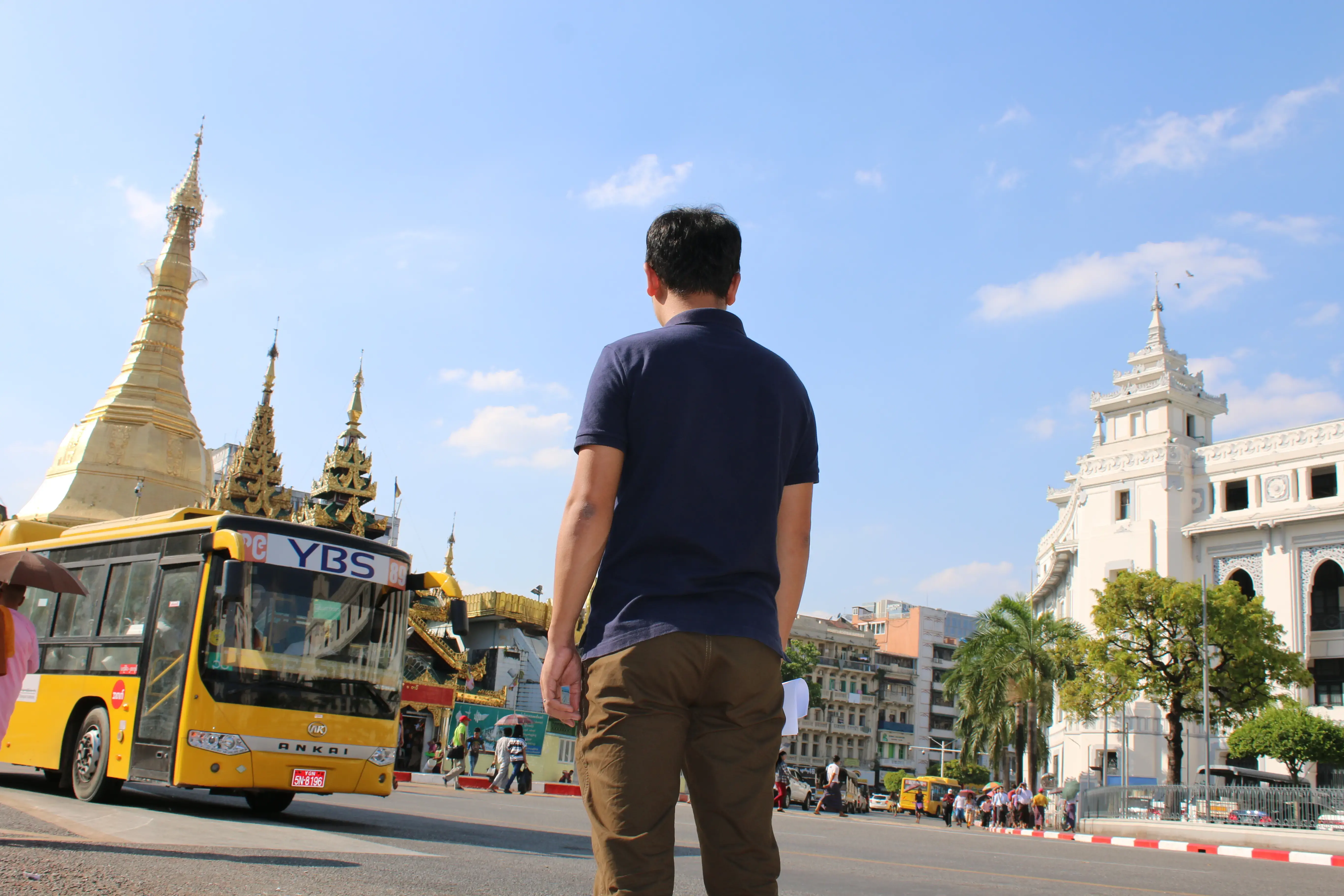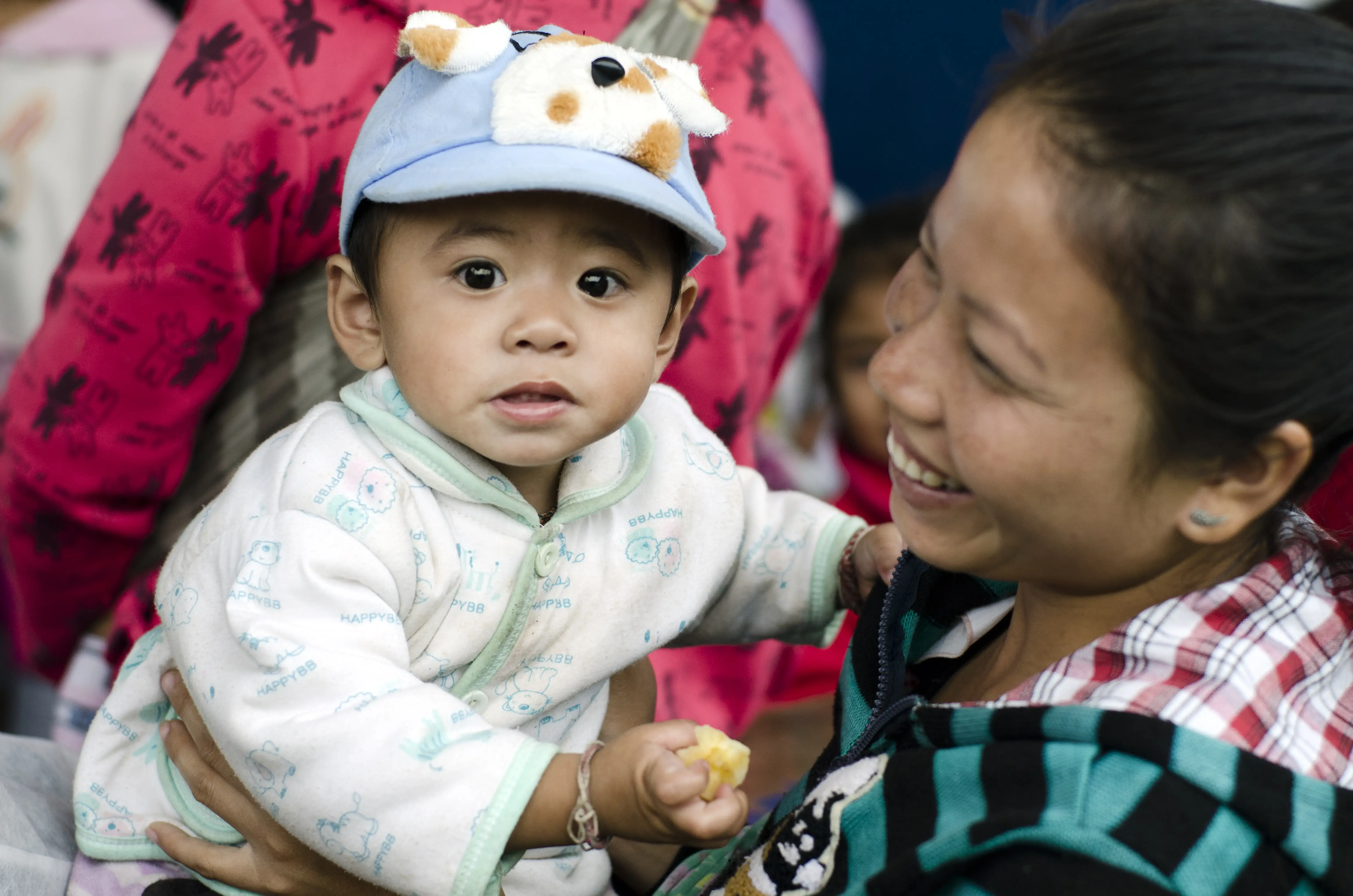In focus: Innovation for menstrual hygiene
Blockchain app delivers menstrual hygiene solutions to Dhaka’s most vulnerable
UNFPA and World Food Programme are piloting a digital platform called 'Building Blocks' to deliver food, menstrual supplies and information through community shops in informal settlements in Dhaka. Each month, women and adolescent girls from targeted groups can redeem packets of disposable menstrual pads and food items from a shop near their home. The innovation fuses a cash and voucher model with a local grocery purchase to empower women and girls with choices when it comes to their menstrual health.
The project began with feedback from a young woman who raised concerns about the challenges and risks of getting to different distribution points during the pandemic to get various life saving products from partners supporting girls.
Eiko Narita, the acting UNFPA representative in Bangladesh, says the comment from the young woman was a catalyst to find better solutions. “Her comment got us to think: ‘How do we make sure that the girl gets rice, menstrual pads and oil all at the same time in a convenient way so she does not have to travel long distances’?”
“The focus has always been on the beneficiary,” says Iliza Azyei, the UNFPA program specialist who coordinates the team driving the initiative. “We wanted to make sure that adolescent girls are safe when they go to a distribution point.”
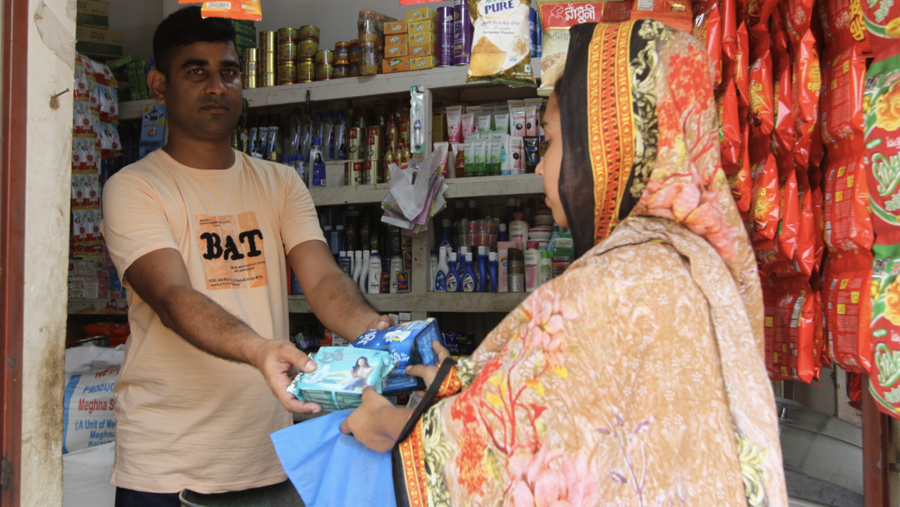
The team is trying new approaches to connect with women and girls about their menstrual health and hygiene and connecting the dots on existing systems to deliver aid, as well as finding solutions to better coordinate vendors and suppliers.
“We wanted to make sure that everything is familiar and convenient for the girls at the center of this,” Iliza says. “We are using existing social mechanisms, like her local shop so everything is familiar and easy for her to access.”
“We wanted to make sure that everything is familiar and convenient for the girls at the center of this. We are using existing social mechanisms, like her local shop so everything is familiar and easy for her to access.”
-Iliza Azye, UNFPA Bangladesh
With a population of more than 22 million people, life is not easy for many adolescent girls in Dhaka. Patriarchal systems of control, inadequate sanitation and entrenched taboos about menstruation create obstacles for girls to access their basic right to dignity and menstrual health.
“This has always been a behavior change and social norm change project,” Iliza says. “We are distributing pads, but we are promoting the idea of pads to give girls an opportunity and choices and let them know there is another way to manage.”
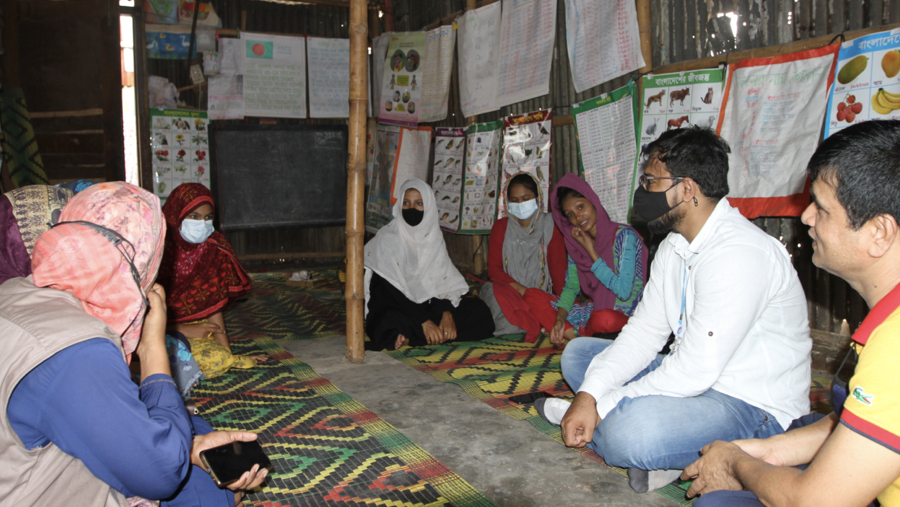
The project leads inclusive consultations to challenge harmful social norms on menstruation and push for the normalization of the discussion about periods as a natural process for women and girls. Many communities believe that menstruation is a sign that girls are ready to get married. Beyond the discussion about sanitary pads, the project informs girls and their families about the dangers of child marriage. “We are having a lot more community meetings,” says Eiko. “The hierarchy that exists in these neighborhoods is unique and we are conducting meetings not only with the adolescent girls but also with leaders to share what we are doing and get their feedback.”
“Half of the shops that started this project did not sell any sanitary pads, now all of them have them."
Iliza says getting male champions on board has been central to the project’s success. “All the owners of the small shops are men and it is a male-dominated industry,” she says. “Half of the shops that started this project did not sell any sanitary pads. Now all of them have them, but we also encourage them to employ women and engage with our partners to keep learning. Men discussing menstruation and sanitary pads is not an easy subject for community engagement sessions.”
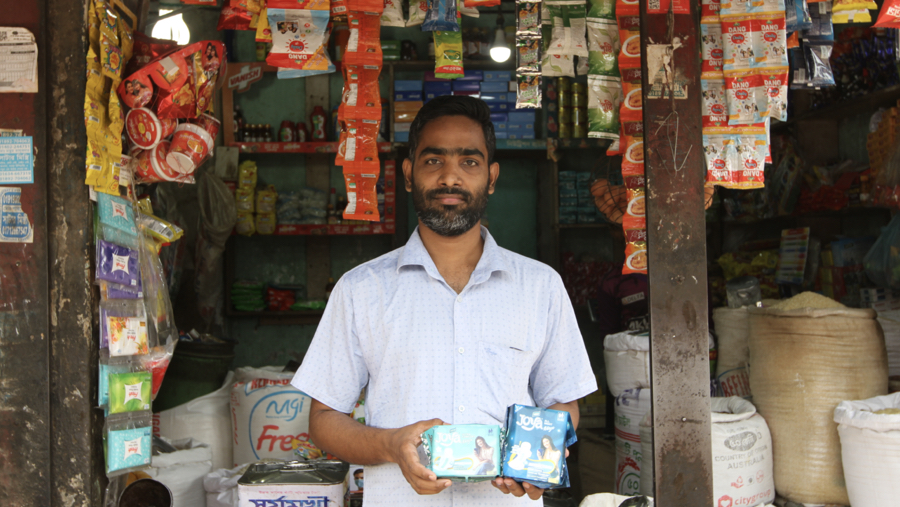
Another part of the initiative was producing the technical specifications of the sanitary pads and then coordinating a bidding process that ensured a continuous supply in the 21 shops involved in the network.
Sébastien Pierrel from the World Food Program joined the UNFPA team to help them adapt the building blocks platform for the focus population the project was looking to support. “With building blocks, we load the type of aid and the quantity,” he says. “Sometimes we want to provide beneficiaries with a cash amount or it could be a commodity. You have this multi-product wallet that you can use for almost anything.”
"Building blocks gives you multi-product wallet that you can use for almost anything.”
-Sébastien Pierrel, World Food Program
When women or girls want to redeem the entitlement, they go to one of the shops where the shopkeeper has an app on their smartphone connected to the building blocks app. “The shopkeeper checks how much this beneficiary is entitled in categories of products,” Sébastien says. “The app works like a cash register to select the products and quantities and then check out.”
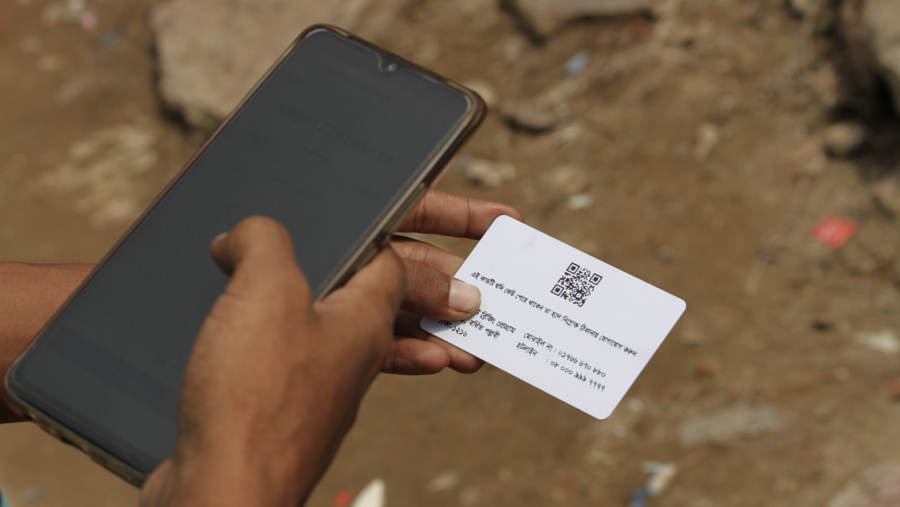
The transaction is connected to an inventory system and provides confirmation to the shopkeeper that the transaction is valid and he hands out the pads, with no money changing hands. The blockchain technology creates a decentralized ledger, a virtual database to keep track of records. Data entered into the blockchain cannot be edited or deleted. Transactions can be verified for audits and for different parties to produce invoices, payments and view transactions.
While building blocks offered advantages for greater transparency and efficiency, the systems to manage and communicate with beneficiaries were more problematic. The team was forced to rely on a mix of spreadsheets with the names, phone numbers and information on the sexual and reproductive health of women in each household.
“This project highlights the need to have a much better beneficiary management system in place to make it more efficient and secure.”
-Iliza Azye, UNFPA Bangladesh
To connect with women and girls and let them know their voucher was ready involved several manual steps to send an SMS to each household and then keep purchases up to date. “It was a tedious process and prone to error and duplication,” Iliza admits about the system they were using before 'Building Blocks'. “This project highlights the need to have a much better beneficiary management system in place to make it more efficient and secure.”
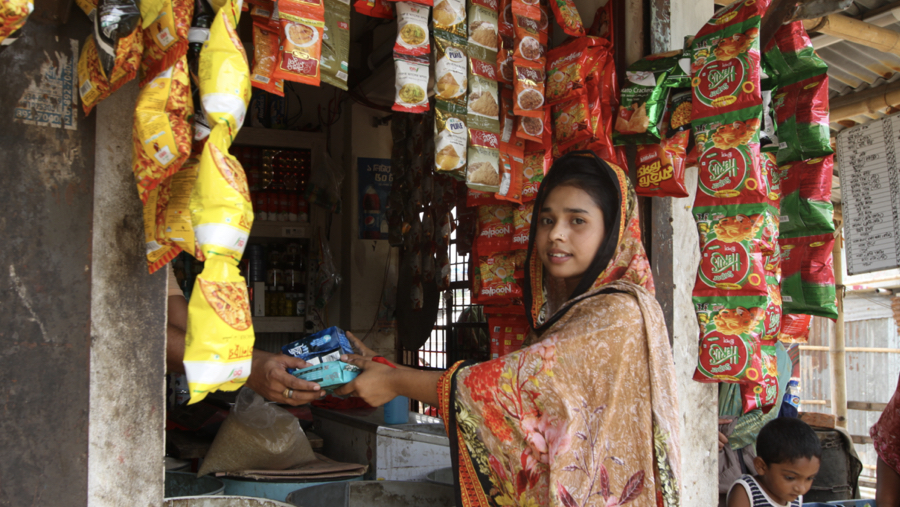
While the project is powered by blockchain technology, Sébastien says the goal is always to keep it simple for women and girls. “On the side of the women and girls, we try to keep it as low tech as possible because our beneficiaries are often quite vulnerable and hard to contact. In the families, it is usually the man who keeps the phone and there can be a power play between the family members of who can use the phone.”
As households sometimes share a mobile phone or rely on relatives who might be outside the household, sending the SMS with the code to redeem the sanitary pads was a fraught process.
“We need to help women and girls manage their menstrual hygiene better, so they can cope with the inevitable consequences and disruptions of climate disasters.”
-Eiko Narita, acting representative UNFPA Bangladesh
The initiative is completing its pilot phase and has delivered 11,852 sanitary pads to women and girls since February 2022. The pilot was awarded ‘best UNFPA innovation’ in the Asia and Pacific region and plans are underway to scale up the initiative. “We would like to share our experiences with other country offices who would want to do humanitarian aid delivery using a non-traditional approach,” Iliza says.
Eiko says menstrual health and hygiene have become even more urgent in Bangladesh because of climate change. More intense storms and heavier rainfall are making the problems of pollution and sanitation in urban slums even more challenging. “We need to help women and girls manage their menstrual hygiene better,” she says, “so they can cope with the inevitable consequences and disruptions of climate disasters.”
Learn more
Blockchain — UN Innovation Network
Getting Started with Blockchain
A Practical Guide to Using Blockchain within the United Nations
United Nations Blockchain applications in the United Nations system: towards a state of readiness
Blockchain Learning Hub | UNICEF Office of Innovation
Building Blocks: Blockchain network for humanitarian assistance

